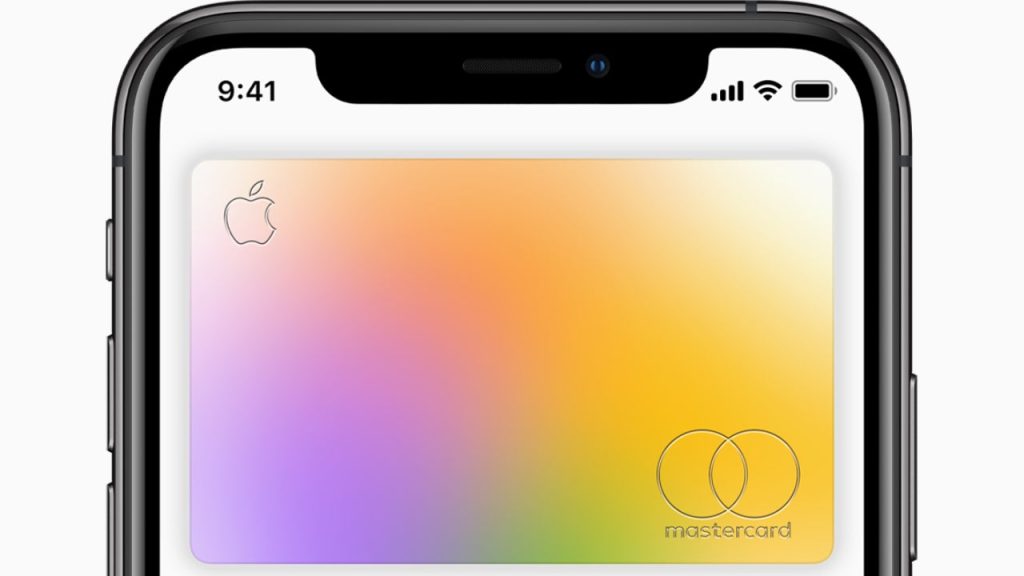Key takeaways
- If you applied for the Apple Card and were denied, you might be invited to join the Path to Apple Card program.
- This program helps members fix the issues that kept them from being approved the first time around, such as having a low credit score or having too much existing debt.
- If you join this program and complete its tasks successfully, you’ll be invited to reapply for the card with better approval odds — though that approval still won’t be guaranteed.
Apple and Goldman Sachs — the companies behind the innovative, no-hidden-fees Apple Card* — launched the Path to Apple Card program in June 2020. The program is designed to help those who previously had their application denied receive a second chance at approval. It uses information gathered from the denied application and offers personalized tasks to improve potential cardholders’ credit, along with a once-a-month progress check. Once potential cardholders complete the goals outlined in the program, they’ll be invited to reapply for the Apple Card.
I’m impressed with how proactive Apple Card has been in terms of financial literacy, financial wellness and cultivating long-term relationships with its customers. This is another example, along with things like not charging any fees, (of) actively encouraging cardholders to pay as little interest.
— Ted Rossman, Senior industry analyst at Bankrate
How Path to Apple Card works
If you’re denied for the Apple Card, you may be invited to enroll in the Path to Apple program. However, your chances of receiving a notification to opt into the program depend on whether Goldman Sachs has identified you as being able to “meet the requirements for approval” after program completion, according to Apple.
Through this program, which can last up to four months, Apple and Goldman Sachs will work with applicants to understand their credit denial and improve their future chances for Apple Card approval. A few personalized tasks that may be assigned include:
However, there are certain events that will cause participants’ enrollment in the Path to Apple program to end. Some of these events include bankruptcy, foreclosure or a new charge-off.
If the program is successfully completed, participants will have a 14-day window to reapply for the Apple Card, should they choose. Note that approval for the Apple Card is not guaranteed. For example, approval odds may be affected if an applicant has lost income or has increased financial obligations.
Why use Path to Apple Card?
In most cases, the primary method for determining which factors led to your credit denial is through an adverse action notice, which really only details the credit reporting agency that supplied your report.
Through the Path to Apple Card program, the veil of credit denial is lifted by offering educational information and action items to increase your chances of approval the second time around. Plus, if you complete the program’s steps, you should see an overall improvement to your credit score and profile, which will benefit you outside of applying for an Apple Card.
Expert’s take on Path to Apple Card
Rossman says that Apple and Goldman Sachs are intentionally focusing on credit-builders and re-builders with the Path to Apple program. FICO scores above 660 are more favorable for approval when it comes to the Apple Card, according to Apple.
“[The] Apple Card is […] available to a broader range of credit scores than most credit cards,” Rossman says. “[…] The rewards are okay, but where this card really shines is in areas like financial wellness and customer service.”
Rossman views the introduction of tools and programs like Path to Apple Card as a jumping-off point for future products and services from Apple and their partner — whether that continues to be Goldman Sachs or winds up being another issuer down the line.
In addition to leading to the use of more financial services, these kinds of tools and programs could lead to “[…] more loyalty to Apple (which could extend to other services and hardware) and possibly even a future where more transactions take place within the Apple ecosystem (buying things with Apple Card, using the rewards for peer-to-peer payments, etc.),” says Rossman.
The bottom line
If you’ve previously applied for the Apple Card and were denied, you may be invited to enroll in the Path to Apple Card program. This program can help you to improve your financial health so you can reapply for the card and get approved.
If you don’t receive an invitation to enroll in this program, your credit profile may need more assistance than the program can provide. Carefully review your credit profile, dispute any errors and take consistent actions to repair your credit before reapplying for the Apple Card or any other rewards credit card.
Frequently asked questions about the Path to Apple Card
-
The Path to Apple Card program is invite-only and will only be extended to those who applied for the Apple Card but were not approved. However, Goldman Sachs will base program offerings on your likelihood of being approved after completing the program.
-
The Path to Apple Card is designed to help those who do not meet approval standards for the Apple Card to build credit until they can be approved. Those within the program will need to complete several steps, such as paying off any debt or past-due balances, to finish the program.
However, only you can determine if the Path to Apple Card program works, as you will be responsible for completing the necessary process.
-
According to Apple, the Apple Card requires a FICO credit score of 660 or higher to have good odds of being approved. This falls into the fair credit score range.
*Information about the Apple Card has been collected independently by Bankrate. Card details have not been reviewed or approved by the issuer.
Read the full article here
